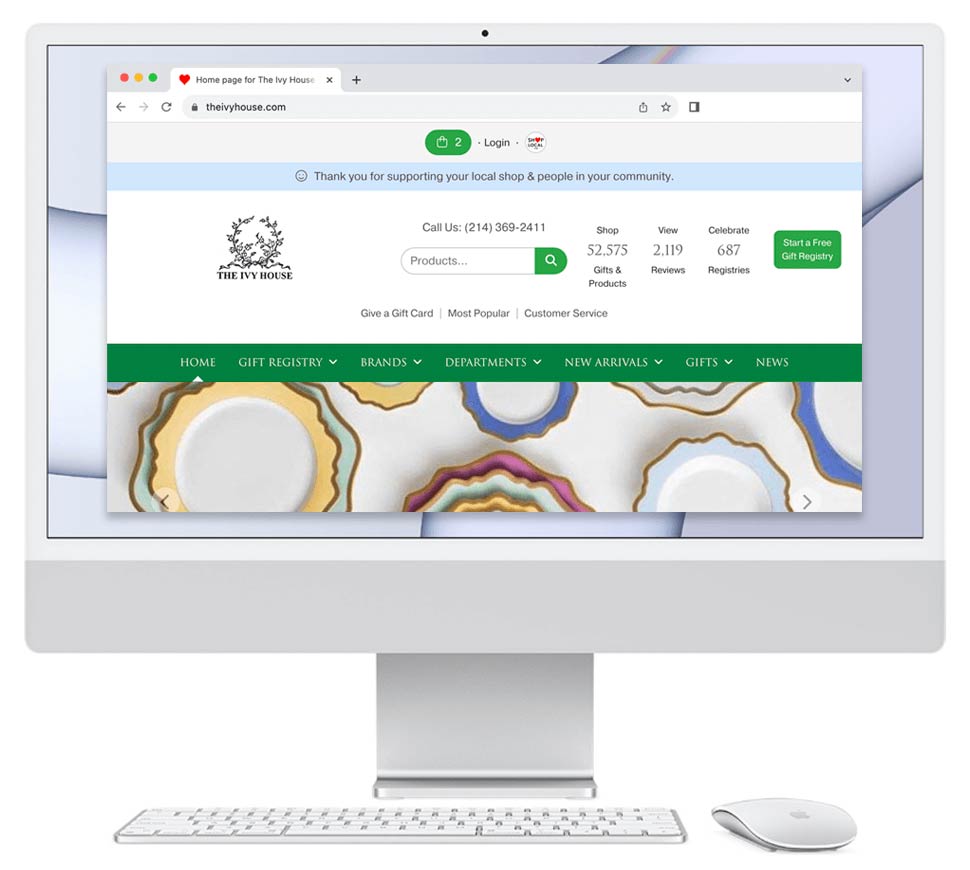
Babcock Gifts, a gift shop in Tennessee, and Juliska, a tableware brand, don't have to worry about sharing products because they use the Syncing service.
Do We Need to Drop Dropbox?
Using our Syncing service, brands and retailers can share product data and make it instantly shoppable in the retailer's Online Store. Dropbox and other file-sharing services simply can't do this. They're not e-commerce platforms and they do not offer an online store service. Our Syncing service keeps brand's products in a website-like, shoppable format. Products are searchable and sortable, just like on the brand's website. A brand loads a product once to its account, and it will appear in real-time in the accounts of retailers, sales reps, and approved businesses.
The service saves each retailer $1 and 3 mintues in labor for each product Synced from a brand. Retailers report selling 18% more due to it. More than 114 premium brands use Shop Local to Sync 73,981 products to 1,470 indie stores in the United States and Canada.
Our Industry is Drowning in File-Sharing Links
Most retailers get buried in Dropbox links. What if there was a better way? Product Syncing lets you bypass services like Dropbox.
Retailers that use Syncing never have to worry about file-sharing links. They get price changes and new introductions from partner brands instantly.
Dropbox Is Good for Sharing Family Photos...Not Running a Retail Business

|

|
| Brand Sends Retailer a Dropbox Link | Retailer Syncs with Brand on Shop Local |
|
Time consuming. Requires constant vigilance by the retailer to watch for new Dropbox links with files and images.
|
Fast. In seconds, all product data from the brand is 'live' in the retailer's Bridge account.
|
|
Not easy. A brand often sends files to multiple email accounts, thereby placing files in different locations for the retailer.
|
Easy. A retailer can use one account to access content from 114 brands.
|
|
Not organized. Dropbox files are often not organized like a website or product catalog.
|
Organized. Products and collections are organized just like a brand’s website or catalog.
|
|
Not complete. A brand often shows just a part of what it offers. Reason: the brand has to manually upload content to Dropbox, and Dropbox’s layout doesn’t match its site.
|
Complete. Brands and stores can display 100% of a brand's products online.
|
|
Labor intensive. Often requires a retailer to manually process and upload to a website. Requires computer-savvy staff.
|
Doesn't require more staffing. Products appear in a retailer's Store instantly. Maintenance-free product management.
|
|
Expensive. Costs retailers thousands of dollars to export and import products to
stores’ sites.
|
Free. Retailers can sync with an unlimited number of Syncing Products for free.
|
|
Inaccurate. Sharing and storing thousands of products with accuracy requires collaboration. There are few mechanisms in place to report issues or crowd-source updates.
|
Accurate. Prices and product content are accurate because brands, retailers, and reps crowd-source the maintenance. Shop Local has tools to help members report and update content.
|
